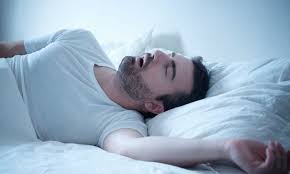How can you prepare for a sleep study?
Those who cannot rest for the necessary hours often find themselves confused and lost. While several reasons can lead to sleep loss, many people face this problem owing to sleep troubles. A sleep study becomes vital at this point as it can help you identify disorders like periodic limb movement, sleep apnea, narcolepsy, and restless legs syndrome. Once you know what is wrong with your sleep cycle, you can take the necessary measures to make things right. For those who would like to learn more about a sleep study and how you can prepare for it, here is some vital information. Let’s read!
What is a sleep study?
A sleep study can be defined as a non-invasive overnight exam where doctors monitor what goes on in your mind and body as you rest. The test is usually conducted at a hospital or sleep centre in a sleep lab. While the patient is asleep, an EEG machine observes sleep stages for identifying the possible reasons for sleep disruption. The study measures eye movements, heart and breathing rates, snoring, blood oxygen levels and body movements to figure out the problem.
How can you prepare for a sleep study?
For determining what sleep trouble you are suffering from, you are recommended to undergo a sleep test. Here is how you can prepare for it:
On the day of the test, stick to your regular schedule as much as possible. Eat what you usually eat and go to work like any normal day.
Do not consume caffeine in any form after lunch, as it can interfere with your sleep cycle.
Avoid using hair gel or other sprays that may present problems in recording sleep.
Do not take a nap during the daytime. It may make you less likely to sleep on time at night.
Do not take alcohol or other sedatives unless your healthcare provider has okayed them.
What can you bring along with you?
Undergoing a sleep test involves staying overnight at the sleep centre. Staying in an unfamiliar place can make you uncomfortable and less likely to sleep. For overcoming this, you can bring along with you the following items:
Comfortable pyjamas or clothes that you typically sleep in
A toothbrush, toothpaste, and flosser to follow your dental routine
Clean clothes for the morning
Something to eat for breakfast if your sleep centre does not provide food
Books if you are used to reading before falling asleep
Makeup remover
Bedtime snack if you crave food right before falling asleep
Toiletries you would need during the time
Sleep study is conducted to detect what is going on in your brain and body during rest. It aids in identifying sleep disorders like sleep apnea, narcolepsy, and insomnia. Those who want to prepare for it should avoid napping, caffeine, or drinking during the day.



Comments
Post a Comment